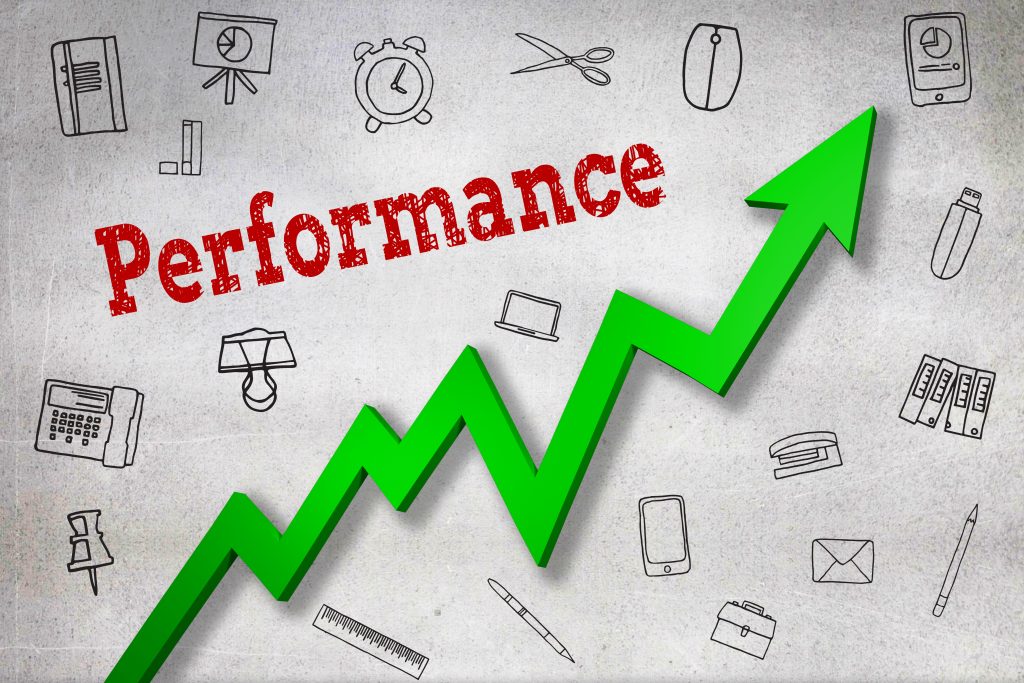Blog Summary:
Quick Overview
This guide explains how nutritional deficiencies cause fatigue, brain fog, and poor performance—and why a quality multivitamin is the solution.

Key Points
The Problem
- Modern diets are calorie-rich but nutrient-poor due to processing and soil depletion
- Chronic stress rapidly depletes B-vitamins, vitamin C, magnesium, and zinc
- Iron deficiency affects 25% of people globally and reduces performance by up to 20%
- Magnesium deficiency (50% of population) impairs energy and muscle function
Why Common Solutions Fail
- Caffeine creates dependency without fixing deficiencies
- Single supplements cause imbalances (vitamins work synergistically)
- Low-quality supplements have poor absorption and inconsistent potency
The Science
- Energy: B-vitamins, iron, magnesium, and CoQ10 power cellular energy production
- Brain Function: B12, folate, B6, and omega-3s support focus and mental clarity
- Recovery: Vitamins C, E, selenium, and zinc protect against oxidative stress
Choosing Quality Supplements
- Use bioavailable forms (chelated minerals, methylated B-vitamins)
- Get 100%+ Daily Values for essential nutrients
- Verify third-party testing (NSF, USP, Informed Sport)
- Check for GMP manufacturing standards
Best Practices
- Take with food containing healthy fats for better absorption
- Be consistent—results appear in 2-4 weeks, full benefits in 6-8 weeks
- Combine with exercise, quality sleep (7-9 hours), and stress management
- Avoid taking multiple multivitamins or excessive individual supplements

Expected Results
- More consistent energy throughout the day
- Improved mental clarity and focus
- Better exercise performance and recovery
- Enhanced stress resilience and overall vitality

You wake up feeling sluggish, despite getting what should have been adequate sleep. Your morning workout feels like you’re dragging weights through molasses, and by mid-afternoon, that familiar brain fog settles in like an unwelcome guest. You’ve tried energy drinks, extra coffee, and even those trendy pre-workout supplements, but nothing seems to give you the sustained energy and mental clarity you desperately need to perform at your best.
If this scenario sounds painfully familiar, you’re not alone. Millions of people struggle daily with low energy, poor concentration, and suboptimal physical performance, often without realizing that the root cause might be hidden in plain sight: nutritional deficiencies that rob your body of its natural ability to generate energy and maintain peak performance.
The Hidden Performance Killers in Your Daily Life
Your body is an incredibly sophisticated machine that requires precise nutritional fuel to function optimally. When you’re missing even one crucial vitamin or mineral, it’s like trying to run a high-performance engine with substandard fuel, everything suffers. The modern lifestyle creates a perfect storm of nutritional depletion that systematically undermines your performance potential.
The Modern Nutritional Crisis
Today’s food system, despite its convenience, often delivers meals that are calorie-rich but nutrient-poor. Processing strips away essential vitamins and minerals, while modern farming practices have led to significant decreases in the nutrient density of fruits and vegetables compared to decades past [1]. Even if you’re eating what you consider a “healthy” diet, you might still be missing critical performance-supporting nutrients.
Stress compounds this problem exponentially. When you’re under chronic stress – whether from work deadlines, family responsibilities, or financial pressures – your body burns through vitamins and minerals at an accelerated rate. B-vitamins, vitamin C, magnesium, and zinc get depleted rapidly during stressful periods, leaving you feeling drained and unable to bounce back [2].
The Energy Production Breakdown
Your cells contain tiny powerhouses called mitochondria that convert nutrients into usable energy. This process requires a complex orchestra of vitamins and minerals working in perfect harmony. When you’re deficient in key nutrients like B-vitamins, iron, magnesium, or CoQ10, your cellular energy production slows to a crawl, leaving you feeling perpetually exhausted despite getting adequate rest [3].
Iron deficiency alone affects nearly 25% of the global population, with women being particularly susceptible [4]. Even mild iron deficiency can reduce your physical performance by up to 20% and significantly impact cognitive function. Meanwhile, magnesium deficiency – present in an estimated 50% of the population – directly impairs muscle function, energy metabolism, and stress resilience [5].
The Cognitive Performance Gap
Your brain consumes approximately 20% of your daily energy, making it particularly vulnerable to nutritional deficiencies. B-vitamins, especially B12, folate, and B6, are crucial for neurotransmitter production and cognitive function. Deficiencies in these nutrients can lead to brain fog, poor concentration, memory issues, and decreased mental stamina [6].

Omega-3 fatty acids, particularly DHA, make up a significant portion of brain tissue and are essential for optimal cognitive performance. Low omega-3 levels are associated with decreased focus, slower processing speed, and reduced mental flexibility [7].
Why Your Current Approach Isn’t Working
You’ve probably tried various solutions to boost your energy and performance. Maybe you’ve increased your caffeine intake, experimented with energy drinks, or even tried individual supplements. Yet here you are, still searching for that elusive combination that will help you feel and perform your best.
The Caffeine Trap
Relying on caffeine for energy creates a vicious cycle. While caffeine can provide temporary alertness, it doesn’t address the underlying nutritional deficiencies causing your fatigue. Worse, excessive caffeine can interfere with sleep quality, increase anxiety, and create dependency. When the caffeine wears off, you crash harder than before, leading to even more fatigue and the need for additional stimulants [8].
The Single-Supplement Mistake
Many people try to address their performance issues by taking individual supplements based on internet research or recommendations from friends. However, vitamins and minerals work synergistically, they need each other to function properly. Taking isolated nutrients can actually create imbalances and may prevent optimal absorption of other essential nutrients [9].
For example, taking high doses of zinc can interfere with copper absorption, while excessive calcium can reduce magnesium uptake. Without understanding these complex interactions, well-intentioned supplementation efforts often fall short or even backfire.
The Quality Problem
Not all supplements are created equal. The supplement industry is largely unregulated, leading to products with inconsistent potency, poor bioavailability, and questionable ingredient sourcing. Many inexpensive multivitamins use synthetic forms of nutrients that your body struggles to absorb and utilize effectively [10].
Glam Dust
Radiant Skin – Luscious Hair – Pristine Nails
Vitamin Shots
The Ultimate Brain And Body Supplement
Vitamin Sprinkles
Fuel Your Brain – Nourish Your Body – With One Delicious Sprinkle
The Science-Based Solution: Comprehensive Nutritional Support
The key to unlocking your peak performance lies in providing your body with a complete spectrum of essential vitamins and minerals in their most bioavailable forms. A high-quality multivitamin and mineral supplement can bridge the nutritional gaps in your diet and provide the foundation your body needs for optimal energy production, cognitive function, and physical performance.
The Energy Production Powerhouse
B-vitamins form the backbone of cellular energy production. Thiamine (B1), riboflavin (B2), niacin (B3), pantothenic acid (B5), and biotin all play crucial roles in converting carbohydrates, fats, and proteins into usable energy [11]. A deficiency in any of these nutrients can create a bottleneck in energy production, leaving you feeling tired despite adequate caloric intake.

Vitamin B12 deserves special attention as it’s involved in both energy metabolism and nervous system function. B12 deficiency is surprisingly common, especially among vegetarians, vegans, and older adults. Even mild B12 deficiency can cause fatigue, weakness, and cognitive impairment [12].
The Antioxidant Defense System
Intense physical activity and mental stress generate free radicals that can damage cells and impair performance. Your body’s natural antioxidant defense system relies on vitamins C and E, selenium, and zinc to neutralize these harmful compounds. Without adequate antioxidant protection, you’ll experience increased fatigue, slower recovery, and reduced performance capacity [13].
Vitamin C is particularly important for athletes and active individuals, as it supports immune function, collagen synthesis, and iron absorption. Low vitamin C levels can impair physical performance and increase susceptibility to infections [14].
The Mineral Foundation
Minerals serve as cofactors for hundreds of enzymatic reactions in your body. Iron is essential for oxygen transport and energy metabolism. Magnesium supports muscle function, nerve transmission, and energy production. Zinc is crucial for immune function, protein synthesis, and wound healing [15].
Calcium and vitamin D work together to support bone health and muscle function. Vitamin D deficiency, which affects an estimated 1 billion people globally, is associated with muscle weakness, increased injury risk, and impaired athletic performance [16].

The Cognitive Enhancement Effect
Certain nutrients have specific benefits for brain function and cognitive performance. Choline supports neurotransmitter production and brain development. Phosphatidylserine helps maintain cell membrane fluidity in brain cells. Alpha-lipoic acid provides antioxidant protection for neural tissues [17].
These nutrients work together to support mental clarity, focus, memory, and overall cognitive performance – giving you the mental edge you need to excel in both work and life.
Plant-Based Nutrition and Athletic Performance
A balanced plant-based diet that includes b vitamins, vitamin e, and other essential nutrients can significantly support athletic performance. Raw nutrition from whole foods, along with a quality mineral supplement, is important for immune function and sports performance. Using a multi or a multivitamin and mineral formula with vitamin b12, selenium, thiamin, and pantothenic acid can help energy production and overall health. Including vitamin b6, vitamin k, b1, folate, and probiotic sources into a vegan diet ensures that vitamin b1 levels remain optimal. These nutrients support bone health, muscle recovery, and muscle function, especially during intense exercise. A healthcare professional can help determine whether certain vitamins are needed to prevent vitamin deficiencies. Whole grains, dairy products, and food-based nutrient sources such as vitamin b and vitamin d3 are essential for those engaging in intense physical activity.

Comprehensive Supplementation for Health and Performance
To maintain health and immunity, zinc supplements, citrus fruits, fatty fish, red meat, and a variety of foods should be included alongside a daily multivitamin. Men’s multivitamin products, including vitamin c, can be paired with a comprehensive food-based multi for optimal support. Plant-based bioactive compounds found in diets rich in whole foods can offer the absolute best way to support your health. Sources of vitamin a include colorful vegetables, and you should also include fortified dairy products for balance. Men of all ages can benefit from carefully measured milligrams of vitamin e when guided by favorite supplements chosen with the help of a healthcare professional. Nutrients from both plant-based and animal sources can assist with oxidative stress reduction, performance during intense physical activity, and recovery after training, ensuring long-term overall health and improved sports performance.
Choosing the Right Multivitamin and Mineral Supplement – Essential vitamins
Not all multivitamin supplements are created equal. To maximize the performance benefits, you need to look for specific quality markers and ingredient forms that ensure optimal absorption and utilization.
Bioavailability Matters
The form of nutrients in your supplement significantly impacts how well your body can absorb and use them. Look for supplements that use chelated minerals, which are bound to amino acids for better absorption. Methylated forms of B-vitamins, such as methylcobalamin (B12) and 5-methyltetrahydrofolate (folate), are more readily utilized by the body than their synthetic counterparts [18].
Active forms of nutrients bypass genetic variations that can impair nutrient metabolism. For example, some people have genetic mutations that make it difficult to convert synthetic folic acid into its active form. Using 5-methyltetrahydrofolate eliminates this issue entirely.
Comprehensive Coverage
A high-quality performance multivitamin should provide meaningful amounts of all essential vitamins and minerals. Avoid products that use “fairy dusting” – including tiny amounts of many nutrients just to list them on the label. Look for supplements that provide 100% or more of the Daily Value for most nutrients, with higher amounts of nutrients commonly deficient in modern diets.
Pay particular attention to nutrients that are difficult to obtain from food alone, such as vitamin D, vitamin B12, and omega-3 fatty acids. Some advanced formulations include performance-supporting compounds like CoQ10, alpha-lipoic acid, and phosphatidylserine for additional cognitive and energy benefits.
Third-Party Testing and Quality Assurance
Choose supplements from companies that invest in third-party testing for purity, potency, and contaminants. Look for certifications from organizations like NSF International, USP, or Informed Sport, which test for banned substances and quality standards [19].

Manufacturing standards matter too. Supplements produced in FDA-registered facilities following Good Manufacturing Practices (GMP) are more likely to be consistent and safe. Avoid companies that make unrealistic claims or don’t provide transparency about their sourcing and manufacturing processes.
Maximizing Your Results: Implementation Strategy
Taking a multivitamin and mineral supplement is just the first step. To maximize your performance benefits, you need to implement a comprehensive strategy that supports optimal nutrient absorption and utilization.
Glam Dust
Radiant Skin – Luscious Hair – Pristine Nails
Vitamin Shots
The Ultimate Brain And Body Supplement
Vitamin Sprinkles
Fuel Your Brain – Nourish Your Body – With One Delicious Sprinkle
Timing and Absorption
Take your multivitamin with a meal that contains some fat to enhance absorption of fat-soluble vitamins (A, D, E, and K). Morning is often ideal as it provides energy-supporting nutrients when your body needs them most. However, if your supplement contains higher amounts of magnesium, taking it in the evening may promote better sleep quality [20].
Some people experience mild stomach upset when taking multivitamins on an empty stomach. If this occurs, always take your supplement with food and consider splitting the dose if your product allows it.
Lifestyle Synergies
Your supplement works best when combined with other healthy lifestyle practices. Regular physical activity increases nutrient needs but also improves circulation and cellular uptake of nutrients. Aim for at least 150 minutes of moderate-intensity exercise per week to maximize the performance benefits of your supplementation [21].
Quality sleep is crucial for nutrient utilization and recovery. Poor sleep impairs growth hormone production, protein synthesis, and cellular repair processes. Prioritize 7-9 hours of quality sleep nightly to allow your body to fully utilize the nutrients you’re providing [22].
Stress Management
Chronic stress depletes nutrients rapidly and impairs absorption. Implement stress management techniques such as meditation, deep breathing exercises, or yoga to reduce nutrient losses and improve overall well-being. Even 10-15 minutes of daily stress reduction practice can significantly impact your body’s ability to maintain optimal nutrient status [23].
Hydration Support
Proper hydration is essential for nutrient transport and cellular function. Aim for at least 8-10 glasses of water daily, more if you’re physically active or live in a hot climate. Dehydration can impair nutrient absorption and reduce the effectiveness of your supplementation efforts [24].
Measuring Your Progress
Tracking your progress helps ensure you’re getting the maximum benefit from your multivitamin and mineral supplement. Pay attention to both subjective feelings and objective measures of performance improvement.
Energy and Vitality Markers
Notice changes in your energy levels throughout the day. Many people report feeling more consistent energy within 2-4 weeks of starting a high-quality multivitamin. You should experience fewer energy crashes, better morning alertness, and sustained energy levels throughout the day [25].
Monitor your exercise performance and recovery. Adequate nutrition supports better workout quality, faster recovery between sessions, and reduced muscle soreness. Keep a simple log of your workouts to track improvements in strength, endurance, or overall exercise capacity.
Cognitive Performance Indicators
Pay attention to your mental clarity, focus, and concentration. Many nutrients in multivitamin supplements directly support brain function, and improvements in cognitive performance often become noticeable within 4-6 weeks of consistent use [26].
Track your productivity at work or during mentally demanding tasks. Better nutrition often translates to improved problem-solving abilities, enhanced creativity, and better decision-making skills.
Sleep and Recovery Quality
Monitor your sleep quality and how rested you feel upon waking. Certain nutrients, particularly magnesium and B-vitamins, support healthy sleep patterns and nervous system function. Better nutrition often leads to more restful sleep and improved morning energy [27].
Common Mistakes to Avoid
Understanding common supplementation mistakes can help you maximize your results and avoid potential setbacks.
The More-Is-Better Trap
Resist the temptation to take multiple multivitamins or add numerous individual supplements without professional guidance. Excessive amounts of certain nutrients can interfere with absorption of others or cause unwanted side effects. Stick to the recommended dosage and allow time for results to manifest [28].
Inconsistent Usage
Supplements work best when taken consistently over time. Sporadic use won’t provide the sustained nutritional support your body needs for optimal performance. Make taking your multivitamin part of your daily routine, just like brushing your teeth or having your morning coffee.
Ignoring Individual Needs
While a high-quality multivitamin provides excellent foundational support, some people may have specific needs based on their genetics, lifestyle, or health status. Consider working with a healthcare provider to assess your individual nutrient needs through blood testing or genetic analysis [29].
Expecting Instant Results
Nutritional changes take time to manifest. While some people notice improvements in energy within days, it typically takes 4-8 weeks to experience the full benefits of consistent multivitamin supplementation. Be patient and consistent with your supplementation routine.
The Long-Term Performance Advantage
Investing in high-quality nutritional support through a comprehensive multivitamin and mineral supplement provides cumulative benefits that extend far beyond immediate performance improvements.
Glam Dust
Radiant Skin – Luscious Hair – Pristine Nails
Vitamin Shots
The Ultimate Brain And Body Supplement
Vitamin Sprinkles
Fuel Your Brain – Nourish Your Body – With One Delicious Sprinkle
Aging and Longevity Support
Optimal nutrition supports healthy aging by protecting against cellular damage, maintaining bone density, supporting immune function, and preserving cognitive abilities. The nutrients in a quality multivitamin help your body maintain its performance capacity as you age, allowing you to stay active and mentally sharp throughout your life [30].
Disease Prevention
Many vitamins and minerals have protective effects against chronic diseases. Adequate folate intake supports heart health, vitamin D helps maintain bone strength, and antioxidant vitamins protect against cellular damage that can lead to various health issues. By addressing nutritional deficiencies, you’re investing in your long-term health and quality of life [31].
Stress Resilience
A well-nourished body is better equipped to handle life’s stresses. Adequate nutrition supports healthy cortisol patterns, neurotransmitter balance, and immune function – all of which contribute to better stress resilience and emotional well-being. This enhanced stress tolerance translates to better performance in all areas of life [32].
Conclusion
Your journey to peak performance doesn’t have to be complicated or frustrating. The solution lies in providing your body with the comprehensive nutritional support it needs through a high-quality multivitamin and mineral supplement. By addressing the hidden nutritional deficiencies that may be sabotaging your energy, focus, and physical performance, you can unlock your body’s natural potential for excellence.
Remember that optimal performance is built on a foundation of proper nutrition, and a well-formulated multivitamin serves as the cornerstone of that foundation. When you provide your body with the essential vitamins and minerals it needs in their most bioavailable forms, you’re not just treating symptoms – you’re addressing the root cause of suboptimal performance and setting yourself up for sustained success in all areas of your life.
The investment you make in quality nutritional supplementation today will pay dividends in enhanced energy, improved cognitive function, better physical performance, and overall vitality for years to come. Your future self will thank you for taking this crucial step toward optimal health and peak performance.
Frequently Asked Questions
Q: How long does it take to see results from a multivitamin and mineral supplement?
A: Most people begin to notice improvements in energy levels within 2-4 weeks of consistent use. However, the full benefits of comprehensive nutritional support typically become apparent after 6-8 weeks of regular supplementation. Factors such as your starting nutritional status, diet quality, and individual metabolism can influence how quickly you experience results.
Q: Can I take a multivitamin if I’m already eating a healthy diet?
A: Yes, even those following healthy diets can benefit from multivitamin supplementation. Modern food processing, soil depletion, and lifestyle factors make it challenging to obtain optimal amounts of all essential nutrients from food alone. A high-quality multivitamin serves as nutritional insurance, filling gaps that may exist even in well-planned diets.
Q: What’s the difference between synthetic and natural vitamins?
A: Natural vitamins are derived from whole food sources, while synthetic vitamins are created in laboratories. Natural vitamins often come with cofactors and compounds that may enhance absorption and utilization. However, some synthetic forms, particularly active or methylated versions, can be more bioavailable than their natural counterparts. The key is choosing high-quality forms regardless of origin.
Q: Should I take my multivitamin with food or on an empty stomach?
A: It’s generally best to take multivitamins with food, preferably a meal containing some healthy fats. This enhances absorption of fat-soluble vitamins (A, D, E, K) and reduces the likelihood of stomach upset. Taking supplements with food also slows absorption, providing more sustained nutrient release.
Q: Can multivitamins interact with medications?
A: Some vitamins and minerals can interact with certain medications. For example, vitamin K can affect blood-thinning medications, and calcium can interfere with certain antibiotics. Always consult with your healthcare provider before starting any new supplement regimen, especially if you’re taking prescription medications.
Q: Are there any side effects from taking multivitamins?
A: High-quality multivitamins are generally well-tolerated when taken as directed. Some people may experience mild stomach upset if taken on an empty stomach. Rarely, individuals may be sensitive to certain ingredients or experience allergic reactions. Start with the recommended dose and discontinue use if you experience any adverse effects.
Q: How do I choose between different multivitamin brands?
A: Look for products that use bioavailable forms of nutrients, provide meaningful amounts of essential vitamins and minerals, and undergo third-party testing for quality and purity. Avoid products with artificial colors, unnecessary fillers, or unrealistic marketing claims. Consider your specific needs, such as gender, age, and activity level when selecting a formula.
Q: Can children take adult multivitamins?
A: No, children should not take adult multivitamins as they contain amounts of nutrients specifically formulated for adult needs. Children require different ratios and amounts of vitamins and minerals. Always use age-appropriate formulations and consult with a pediatrician before giving supplements to children.
Q: Is it better to take individual supplements or a multivitamin?
A: For most people, a comprehensive multivitamin provides the best foundation for nutritional support. Individual supplements may be necessary for specific deficiencies or health conditions, but should typically be used in addition to, not instead of, a quality multivitamin. Taking multiple individual supplements can be expensive and may lead to nutrient imbalances.
Q: Do multivitamins expire, and how should they be stored?
A: Yes, multivitamins do expire and should be stored in a cool, dry place away from direct sunlight. Heat, moisture, and light can degrade nutrients over time. Check expiration dates and replace supplements as needed. Proper storage helps maintain potency and effectiveness throughout the product’s shelf life.
References
[1] Davis, D. R. (2009). Declining fruit and vegetable nutrient composition: What is the evidence? HortScience, 44(1), 15-19.
[2] Tardy, A. L., et al. (2020). Vitamins and minerals for energy, fatigue and cognition: A narrative review of the biochemical and clinical evidence. Nutrients, 12(1), 228.
[3] Huskisson, E., et al. (2007). The role of vitamins and minerals in energy metabolism and well-being. Journal of International Medical Research, 35(3), 277-289.
[4] World Health Organization. (2015). The global prevalence of anaemia in 2011. Geneva: World Health Organization.
[5] DiNicolantonio, J. J., et al. (2018). Subclinical magnesium deficiency: A principal driver of cardiovascular disease and a public health crisis. Open Heart, 5(1), e000668.
[6] Kennedy, D. O. (2016). B vitamins and the brain: Mechanisms, dose and efficacy—A review. Nutrients, 8(2), 68.
[7] Freeman, M. P., et al. (2010). Omega-3 fatty acids: Evidence basis for treatment and future research in psychiatry. Journal of Clinical Psychiatry, 71(12), 1397-1409.
[8] Reissig, C. J., et al. (2009). Caffeinated energy drinks—A growing problem. Drug and Alcohol Dependence, 99(1-3), 1-10.
[9] Blumberg, J. B., et al. (2018). Impact of frequency of multi-vitamin/multi-mineral supplement intake on nutritional adequacy and nutrient deficiencies in U.S. adults. Nutrients, 10(10), 1408.
[10] Dwyer, J. T., et al. (2018). Dietary supplements: Regulatory challenges and research resources. Nutrients, 10(1), 41.
[11] Depeint, F., et al. (2006). Mitochondrial function and toxicity: Role of the B vitamin family on mitochondrial energy metabolism. Chemico-Biological Interactions, 163(1-2), 94-112.
[12] Green, R., et al. (2017). Vitamin B12 deficiency. Nature Reviews Disease Primers, 3, 17040.
[13] Powers, S. K., et al. (2011). Exercise-induced oxidative stress: Cellular mechanisms and impact on muscle force production. Physiological Reviews, 91(4), 1243-1276.
[14] Hemilä, H., & Chalker, E. (2013). Vitamin C for preventing and treating the common cold. Cochrane Database of Systematic Reviews, (1), CD000980.
[15] Prasad, A. S. (2008). Zinc in human health: Effect of zinc on immune cells. Molecular Medicine, 14(5-6), 353-357.
[16] Holick, M. F. (2017). The vitamin D deficiency pandemic: Approaches for diagnosis, treatment and prevention. Reviews in Endocrine and Metabolic Disorders, 18(2), 153-165.
[17] Glade, M. J. (2010). Caffeine—Not just a stimulant. Nutrition, 26(10), 932-938.
[18] Paul, L., & Selhub, J. (2017). Interaction between excess folate and low vitamin B12 status. Molecular Aspects of Medicine, 53, 43-47.
[19] Andrews, K. W., et al. (2018). Analytical ingredient content and variability of adult multivitamin/mineral products: National estimates for the Dietary Supplement Ingredient Database. American Journal of Clinical Nutrition, 108(5), 1069-1078.
[20] Abbasi, B., et al. (2012). The effect of magnesium supplementation on primary insomnia in elderly: A double-blind placebo-controlled clinical trial. Journal of Research in Medical Sciences, 17(12), 1161-1169.
[21] Warburton, D. E., et al. (2006). Health benefits of physical activity: A systematic review of current systematic reviews. Current Opinion in Cardiology, 21(5), 551-558.
[22] Mah, C. D., et al. (2011). The effects of sleep extension on the athletic performance of collegiate basketball players. Sleep, 34(7), 943-950.
[23] Goyal, M., et al. (2014). Meditation programs for psychological stress and well-being: A systematic review and meta-analysis. JAMA Internal Medicine, 174(3), 357-368.
[24] Ganio, M. S., et al. (2011). Mild dehydration impairs cognitive performance and mood of men. British Journal of Nutrition, 106(10), 1535-1543.
[25] Long, S. J., & Benton, D. (2013). Effects of vitamin and mineral supplementation on stress, mild psychiatric symptoms, and mood in nonclinical samples: A meta-analysis. Psychosomatic Medicine, 75(2), 144-153.
[26] Grima, N. A., et al. (2012). The effects of multivitamins on cognitive performance: A systematic review and meta-analysis. Journal of Alzheimer’s Disease, 29(3), 561-569.
[27] Held, K., et al. (2002). Oral Mg(2+) supplementation reverses age-related neuroendocrine and sleep EEG changes in humans. Pharmacopsychiatry, 35(4), 135-143.
[28] Biesalski, H. K., & Tinz, J. (2017). Multivitamin/mineral supplements: Rationale and safety. Nutrition, 33, 76-82.
[29] Fenech, M. (2010). Vitamins associated with brain aging, mild cognitive impairment, and Alzheimer disease: Biomarkers, epidemiological and experimental evidence, plausible mechanisms, and knowledge gaps. Advances in Nutrition, 1(1), 5-16.
[30] Rautiainen, S., et al. (2016). Multivitamin use and the risk of cardiovascular disease in men. Journal of Nutrition, 146(6), 1235-1240.
[31] Bailey, R. L., et al. (2013). Why US adults use dietary supplements. JAMA Internal Medicine, 173(5), 355-361.
[32] Soria, M., et al. (2015). A randomised controlled trial of the effects of a multi-vitamin/mineral supplement on fatigue and psychological distress in healthy adults. Human Psychopharmacology, 30(6), 421-427.




.png)
